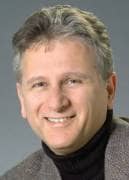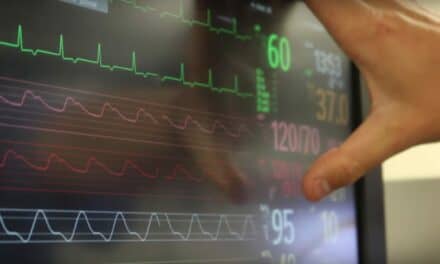How HTM workers can help poor patients across the world
By Diane Rickard
Guido Kortleven, 31, was only 11 years old when a family friend volunteered with Mercy Ships. He remembers being intrigued by the stories sent home in newsletters. After school, he studied healthcare technology and worked until 2018 in the IJsselland Hospital in Capelle aan den Ijssel in the Netherlands as head of the medical engineering department followed by a year as a technical care specialist at Zetacom.
But those childhood stories never left him. In 2019, he and his wife Marie-Anne along with their three boys moved on board the Africa Mercy, the world’s largest private hospital ship. Now as a senior biomedical technician, Kortleven supports the hospital, ensuring that all surgical and diagnostic equipment is working to a professional standard. “I had a good job that I enjoyed. But I wanted to use my talents for those who needed it most,” states Kortleven.
The 11,600-ton Africa Mercy is home to more than 400 volunteers from more than 50 nations at a time. This marvel of a floating hospital community is able to provide lifesaving surgical care free of charge in ports of West and Central Africa. Those who volunteer to serve on board raise their own funds to participate.
Biomeds Essential
Biomeds like Kortleven are in short supply on these vessels where they are greatly needed. The daily nitty-gritty of his role on Africa Mercy includes overseeing the management of medical devices, including arranging for scheduled maintenance, calibration, and repair of equipment. Types of equipment on board include anesthetic systems, ventilators, CR x-ray, CT, ultrasound imaging, OR and ward equipment, YAG lasers and ophthalmic devices, autoclaves, oil-free compressors, dental suites, and generators up to 35KVA.
“We need more biomeds on board, preferably for six months or longer, but sometimes we can even take volunteers for as short as a month,” says Kortleven. Mercy Ships recommends that any interested technicians submit an application at least six months prior to their target service date. The work benefits countless people who have no other option for the medical care they seek.
When asked about a memorable patient, Kortleven says, “Although a lot of time is spent working with machinery onboard ship, we also get to meet some of the patients whose lives are changed by the surgeries done on ship. I met Mariama personally. I noticed how shy she was and she often looked down and was clearly uncomfortable. Almost all of the maxillofacial/ plastic reconstructive surgery patients struggle with a distorted self-image. Mariama can now feel more confident and envision a better future.”
Mariama’s Story
Mariama is only 17 years old. At first impression, you would not have a clue about the pain this teenager feels. While her beauty is obvious, Mariama doesn’t see it. From birth, she had a cyst on her right eye. Although relatively small, its growth has had a major impact on her self-esteem. Every day, Mariama carefully wrapped a black headscarf to cover the cyst to avoid the pain of the hurtful comments. Although she could hide from the world, she couldn’t escape her own reality.
“It makes me sad to look at myself in the mirror,” she said. Mariama was not alone in suffering. Her father, Thekheye, felt pain as well when he saw his daughter struggling with her condition. “When I was in the hospital and saw that Mariama was born with the cyst over her eye, I was overcome with grief and confusion,” he says. Thekheye wanted to do everything possible to help his daughter and tried to find a way to heal her. But without a job, there was little he could do.
Thekheye heard about Mercy Ships over a radio broadcast. “I’m so grateful to Mercy Ships,” he says. “Knowing that the ship could heal my daughter gave me hope.” After living behind a veil for many years, it took only two days to free Mariama from the condition that had left her feeling ugly for so long. After her surgery, she was able to look in the mirror with renewed confidence. Staring at her reflection for the first time since the cyst was removed, Mariama was overwhelmed. “I can’t believe it’s gone,” she said.
Today, Mariama reveals the confident smile of a teenager whose dreams of going to college and starting a family have come much closer. The surgery she received on the Africa Mercy has allowed her to see the world in a new way—the way of hope. Mariama returned to her village with a higher self-image. In the months following her surgery she reflected, “I have almost forgotten the bleak period of my life before surgery.”
In low-income and lower-middle-income countries, nine out of 10 people have no access to basic surgical care. Among the countries Mercy Ships serves, access to safe, affordable, and timely surgery is extremely limited. As a result, countless people suffer and die from “diseases of poverty” that can be cured. Seeking to meet the needs of the people behind these staggering statistics is at the heart of the Mercy Ships mission—to bring hope and healing to the world’s forgotten poor.
Training and Equipping
Mercy Ships also provides training for biomedical technicians as a means to improve a country’s overall healthcare ecosystem. The effective use of medical tools and equipment is critical to the provision of care to a local population.
The organization’s biomed training projects aim to improve biomedical engineering services at partner hospitals by providing assignments and projects designed to help technicians improve their understanding of equipment diagnostics and repair techniques. These courses encourage participants to take ownership of their biomedical engineering service, seeing it as their own professional business and not an externally administered and run project.
Mercy Ships encourages participants to learn and apply these skills to enhance their professional interactions with clinical personnel and hospital management, understanding that they are a valuable part of the healthcare team. Mercy Ships also offers a second course in the repair and maintenance of anesthesia machines. This two-week course aims to improve the skills of local biomedical technicians on troubleshooting, repairs, and maintenance. This training is separate from the standard biomedical technician course due to the highly specialized nature of these machines.
The business management project aims to train participants in such a way that their biomedical services become self-supporting and not reliant on foreign donations. This project incorporates an introduction to business management skills, including preparation and presentation of a business plan, encouraging good business practice among participants to help make them aware of the financial side of providing biomedical services.
In collaboration with local hospitals and the Ministry of Health, Mercy Ships also provides repairs and renovations to selected facilities prior to running workshops in turn for the upgraded facilities remaining in operation after the Africa Mercy departs. For more information on how you can use your experience as a biomedical technician to help bring hope and healing in sub-Saharan Africa, visit mercyships.org/volunteer or contact Mercy Ships directly at [email protected].
Diane Rickard is international media relations manager for Mercy Ships. Questions and comments can be directed to 24×7 Magazine chief editor Keri Forsythe-Stephens at [email protected].




